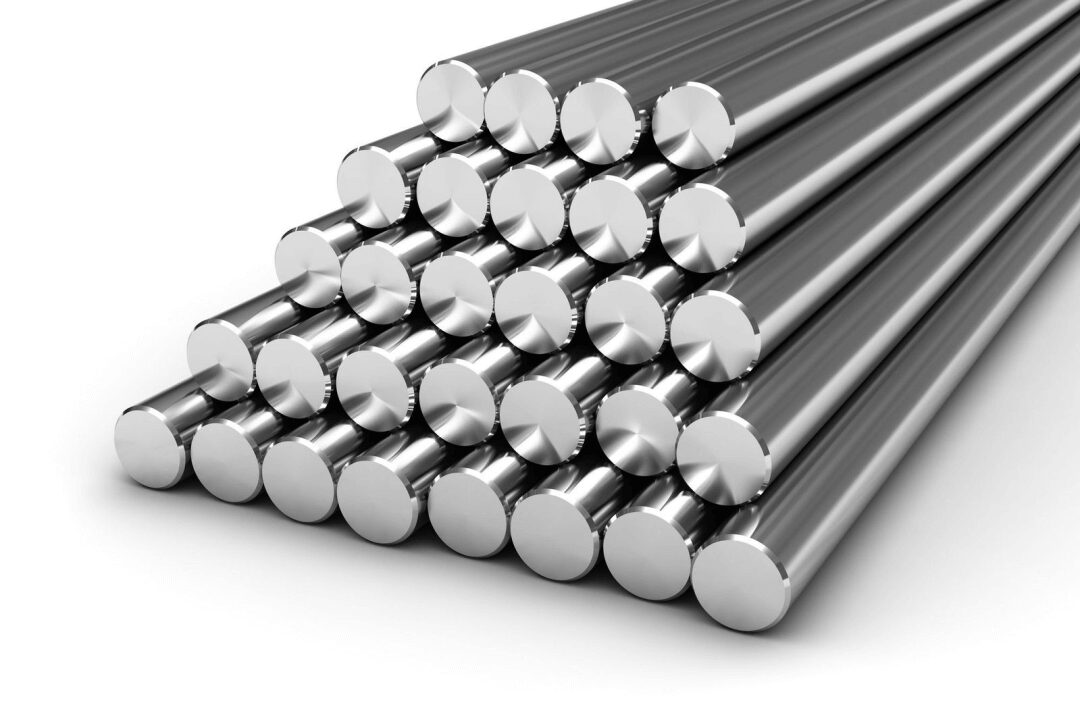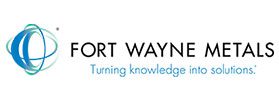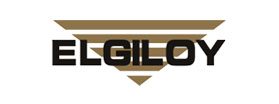Understanding Cobalt Nickel Chromium Molybdenum as a high performance alloy
Cobalt-Nickel-Chromium-Molybdenum, often abbreviated as Co-Ni-Cr-Mo, is a type of high-performance alloy that combines several essential elements to achieve specific properties suitable for various applications.
Each element in the alloy contributes distinct characteristics:
- Cobalt (Co):
Cobalt enhances the alloy’s strength and temperature resistance. It helps maintain the alloy’s mechanical properties at high temperatures, making it suitable for high-temperature applications. - Nickel (Ni):
Nickel contributes to the alloy’s corrosion resistance and enhances its toughness and ductility. It also helps the alloy maintain its strength over a wide temperature range. - Chromium (Cr):
Chromium is known for its exceptional corrosion resistance, which makes it a crucial element in many high-performance alloys. It forms a protective oxide layer on the surface of the alloy, preventing corrosion and enhancing durability. - Molybdenum (Mo):
Molybdenum adds strength and high-temperature stability to the alloy. It also improves the alloy’s resistance to corrosion, particularly in harsh environments, such as those with exposure to corrosive chemicals.
Properties of Cobalt Nickel Chromium Molybdenum Alloys
- Compound Formula: CoNiCrMo
This compound formula represents the chemical composition of the alloy, consisting of cobalt (Co), nickel (Ni), chromium (Cr), and molybdenum (Mo). - Melting Point: 1320 °C (2410 °F)
The melting point of the CoNiCrMo alloy is relatively high, indicating its ability to withstand elevated temperatures without undergoing phase changes. - Density: 8.7 g/cm³ (0.3145 lb/in³)
The density of 8.7 grams per cubic centimeter indicates that the alloy is relatively dense, which contributes to its strength and durability. - Electrical Resistivity: Approximately -7 x 10⁻⁷ Ω-m (-2.75907 x 10⁻⁵ Ω-in)
This property denotes the resistance of the alloy to the flow of electrical current. The negative sign indicates that it is a conductor of electricity. - Poisson’s Ratio: 0.29
Poisson’s ratio describes the material’s tendency to contract in one direction when it is stretched in another. A value of 0.29 suggests moderate compressibility when under tension. - Specific Heat: 500 J/kg-K (Joules per kilogram per Kelvin) (0.119503 BTU/lb-°F)
Specific heat indicates the amount of heat energy required to raise the temperature of a given mass of the material by one degree Kelvin. A higher specific heat value indicates the material’s ability to store heat energy. - Tensile Strength: 770 to 1930 MPa (Ultimate)/ 310 to 1660 MPa (Yield) (111.6M psi to 279.M psi)
Tensile strength represents the maximum stress a material can withstand when being pulled or stretched. The given range shows the ultimate tensile strength (maximum stress before failure) and yield strength (stress at which deformation becomes permanent). - Thermal Conductivity: 11 W/m-K (Watts per meter-Kelvin) (6.356 BTU/h-ft-°F)
Thermal conductivity measures how well the alloy conducts heat. A value of 11 indicates that it is a moderately efficient conductor of heat. - Thermal Expansion: 13 µm/m-K (micrometers per meter-Kelvin) (0.0000793 in/in-°F)
Thermal expansion measures the change in size of the alloy with temperature variations. A value of 13 µm/m-K indicates moderate expansion when heated. - Modulus of rigidity [shear modulus] 75 GPa to 80 GPa (GigaPascals) (10.8M psi to 11.6M psi)
Young’s modulus is a measure of the stiffness or elasticity of the material. A high value of 230 GPa indicates that the CoNiCrMo alloy is relatively stiff. - Young’s Modulus: 230 GPa (Gigapascals) (33.3M psi)
Young’s modulus is a measure of the stiffness or elasticity of the material. A high value of 230 GPa indicates that the CoNiCrMo alloy is relatively stiff.
Producers of Cobalt Nickel Chromium Molybdenum (Co-Cr-Ni-Mo)
According to Fort Wayne Metals, FWM® 1058 Alloy, Conichrome®, Phynox® and Elgiloy® are all trademark names for the cobalt-chromium-nickel-molybdenum-iron alloy specified by ASTM F 1058 and ISO 5832-7.
Battelle Laboratories originally developed the alloy for making watch springs, and it was patented in 1950.
Co-Cr-Ni-Mo is also commonly produced as FWM® 1058, Conichrome®, Phynox®, and Elgiloy®.
FWM® 1058 Alloy Springs
FWM® 1058 is a trademarked brand of alloy springs developed and produced by Fort Wayne Metals, a company based in the United States.
Conichrome® Springs
PHYNOX® is a trademarked brand of alloys developed and manufactured by Carpenter Technology Corporation, a specialty metals company based in the United States.
Phynox® Springs
Aperam IMPHY, based in the United States, is known for developing and producing the trademarked brand of Phynox® alloys.
Elgiloy® Springs
Elgiloy Corporation, based in the United States, is known for developing and producing the trademarked brand of Elgiloy® alloys.
Properties that Make Cobalt-Nickel-Chromium-Molybdenum Springs Exceptional
This spring material possess a unique combination of properties that set them apart:
- Corrosion Resistance:
They are highly resistant to corrosion, making them suitable for harsh environments. - High Strength:
Can withstand significant loads, making them suitable for demanding applications. - Non-Magnetic:
Non-magnetic, which is crucial in applications where magnetism must be avoided. - Fatigue Life:
Have a long fatigue life, ensuring durability. - Temperature Resistance:
They can operate at both high and low temperatures. - Stress Corrosion Resistance:
Are resistant to stress corrosion cracking. - Ductility:
They offer good ductility (resistant to deformation), making them versatile for various applications.
Cobalt-Nickel-Chromium-Molybdenum Springs in Various Industries by Western Spring Manufacturing
This spring material is used in a wide range of applications across various industries due to their exceptional properties, including high strength, corrosion resistance, and fatigue resistance.
Western Spring provides spring and wire form manufacturing using FWM® 1058, Conichrome®, Phynox®, and Elgiloy® in the following industries:
- Aerospace Industry:
These alloy springs are widely used in aircraft and spacecraft applications. They are employed in landing gear, control systems, engine components, and other critical parts that require high-performance springs capable of withstanding extreme conditions and ensuring long-term reliability. - Medical and Healthcare:
Alloy springs made from this composition are used in medical devices and equipment, including surgical instruments, dental tools, and implantable devices. Their biocompatibility, corrosion resistance, and fatigue life make them suitable for these critical applications. - Oil and Gas Industry:
These alloy springs are utilized in oil and gas exploration and production equipment. They can withstand the harsh and corrosive environments often encountered in offshore drilling platforms and downhole tools. - Chemical Processing:
Chemical processing plants employ these alloy springs in valves, pumps, and other equipment that come into contact with corrosive chemicals. Their resistance to corrosion is essential for maintaining the integrity of these components. - Electronics and Electrical Engineering:
Alloy springs made from this composition are used in electronic connectors, switches, and other components where their non-magnetic properties are advantageous. - Marine and Naval Applications:
These alloy springs are found in marine equipment and naval systems due to their ability to withstand the corrosive effects of saltwater and marine environments. - Automotive Industry:
Alloy springs made from this composition are used in high-performance automotive applications, such as racing suspensions, where durability and strength are crucial. - Energy and Power Generation:
Alloy springs made from this composition can be found in power generation equipment, including turbines and generators, where their resistance to high temperatures and environmental factors is essential. - Watchmaking:
These alloy springs are used in high-end watch movements due to their precision and resistance to corrosion. - Valve and Actuation Systems:
These alloy springs are used in various valve and actuation systems, including those used in industrial automation and fluid control applications. - Petrochemical Industry:
Petrochemical plants utilize these alloy springs in critical equipment like control valves and pressure relief valves to ensure long-term reliability in corrosive environments.
A Spring Design Tip from Western Spring Manufacturing
When your manufacturing project demands high-performance and corrosion resistant alloys like Cobalt-Nickel-Chromium-Molybdenum (Co-Cr-Ni-Mo), Western Spring offers a range of materials to choose from, all capable of delivering the same longevity and overall effectiveness.
Our dedicated spring design team is here to assist you in precisely defining your production requirements, guaranteeing that your springs not only meet all technical specifications but also offer a cost-effective solution tailored to your needs.
If you find yourself uncertain about the specific alloy requirements or would like more insights into the various manufacturers of Co-Cr-Ni-Mo alloys, please do not hesitate to get in touch with us. We’re here to provide the expertise and guidance you require.
Acknowledgement
The assistance of C. Richard Gordon, Technical Director at the Spring Manufacturers Institute, in the preparation of this article is acknowledged and appreciated.





